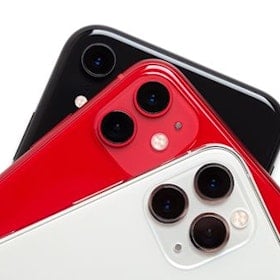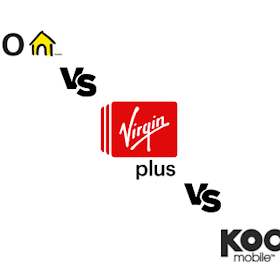
Last year, Google disappointed Nexus fans by releasing a fairly-expensive, gigantic 6-inch flagship phone for Android called the Nexus 6. It was an unpopular departure from its short-running, but hugely-successful move towards sensible, solid devices at an affordable price like the Nexus 5 and Nexus 4.
This year, Google can have its cake and eat it too thanks to unveiling two Nexuses (Nexi?) side-by-side: the bigger Nexus 6P and the crowd-favorite LG-made Nexus 5X. Both will come running Android 6.0 Marshmallow out of the box.
The 5X will start at US$379 for the 16GB version, and go up to US$429 for 32GB. Compare that to US$649 for the 16GB iPhone and $749 for the 64GB model and you can see the appeal.
Obviously, with a price tag this low the Nexus 5X was not designed to contend with the likes of the iPhone 6s, or any other flagship. Even so, when you look at the surprisingly-good hardware compared to what you’ll pay, the Nexus 5X starts looking pretty appealing.
Especially when you consider things like…
1080p is not a bad display
The Nexus 5X is more of a standard size than its sibling, weighing in with a 5.2 inch display; the same size as the Samsung Galaxy S6 but bigger than the 4.7 inches of the iPhone 6s.
Size is where the display similarities end, and you can be sure the smaller screen resolution of 1080p on the 5X will garner some disapproval from Android fans. We prefer a more measured approach; you need to pick your pixels, and in this instance LG has correctly gone with a 'less is more' philosophy.
1440p has become the calling card of modern day Android top-tier devices, especially those that contend directly with the iPhone. In this particular instance, such a high resolution would have been a waste of both battery power and money. Higher resolution means more power required to run the screen. It’s also more-expensive to manufacture the panels, so sacrifices would have had to been made elsewhere to keep the price so low.
1080p over a 5.2 inch screen still affords the Nexus 5X a full 423 pixels per inch (ppi). That’s an almost 30% higher pixel density than the iPhone 6s – a far more-expensive device. In short: there’s nothing wrong with a 1080p panel on a screen this size, no matter what price you're paying, unless there’s a bit of eagle or hawk somewhere in your family history.
A 12.3MP camera? Great!
Android has a problem that’s getting harder to ignore: every manufacturer keeps cramming more and more megapixels (MP) in to its cameras. Right now the standard sits anywhere between 16MP and 23MP. This is not good. Higher MP means photos take up more storage and capture less light, so at some point you end up with bulkier, lower-quality images.
We’ve argued time and again that more MP does not a better camera make. Just look at the iPhone; Apple has consistently produced the best, or close-to the best, camera on the market with each successive iPhone release, relying on just 8MP since the iPhone 4s. Only this year, with the 6s and 6s Plus, has that been finally upped to 12MP. The results? Still a fantastic camera, easily capable of keeping up with or besting the competition that boast significantly more MP.
The Nexus 5X’s 12.3MP might look paltry next to the 23MP of a Sony Xperia Z5, but pay little attention to the numbers. What matters is results. Apple has already proved that 12MP is sufficient to produce fantastic photos. It's unlikely the Nexus 5X will be as good as the iPhone 6s at image capture, but there's no reason to believe it'll be bad, either.
Let’s wait around and see how the Nexus 5X’s camera actually takes photos before we make any judgements. If it’s anything like the incredible camera on the LG G4 (a 16MP shooter) from 6 months ago, it’ll be more than good-enough to justify its price point.
Fingerprint security
The Nexus 5X has a fingerprint reader on the back, right where your finger would normally sit when holding the phone. In most situations, this is actually an easier solution than the home button-oriented reader on the iPhone, which actually requires you to move your thumb or finger an inch or so to use it (gasp!).
No matter where it sits, fingerprint readers have become a common and safe alternative to traditional PIN locks and other password variations on modern smartphones. They're a fast and secure way to keep your stuff on lock-down, without the hassle. This is a great addition to the Nexus family.
That battery
It’s 2015 – a 2700mAh battery is small, right? Wrong! This is a misconception that has crept up in the second half of this year thanks recent releases/announcements from the likes of the Sony Xperia Z5 Premium (3430mAh), or the Samsung Galaxy Note 5 (3000mAh). These are huge batteries, but they’re designed to power phones with a massive power demand.
The Nexus 5X, as mentioned earlier, doesn’t have one of those big, thirsty screen resolutions. Nor is its display particularly big. It doesn’t need a giant power source.
Furthermore, 2700mAh is about the same as the iPhone 6s Plus (2750mAh), far bigger than the iPhone 6s (1715mAh), and bigger even than the Galaxy S6 (2550mAh).
In short, the Nexus 5X will have plenty of power to spare. Expect a full day’s battery with moderate use; just like any other smartphone.
A new USB port was inevitable
Remember the outcry when Apple changed its ports? Get ready for it to start all over again with every device that has traditionally used a standard micro USB. A new standard – USB-C – is going to start rolling out over the next couple of years. The Nexus 5X and Nexus 6P are the first Androids to come with the new port.
Yes, this means your current micro USB cables won’t fit and yes, in the short term it’ll be a hassle. That doesn’t matter; this day was always coming. Technology can’t stand still forever.
Type-C USB can support faster information transfer and, more-importantly, faster charging. It’s also reversible, which will make plugging cables in easier in the dark.
It’s important to note that USB-C is only the shape of the port; it does not guarantee any better underlying technology we just mentioned. We’ve reached out to LG with inquiries around if we can expect better information transfer, or faster charging. So far we’re yet to receive an official response from LG.
It’s a Nexus!
Nexus phones run the vanilla Android user interface (UI). This UI is the one specifically designed by Google to operate with the Android operating system. Thanks to this, it’s faster, cleaner (no bloatware), and you’ll receive Android updates pretty quickly after Google releases them.
Faster updates means your device will get better with each successive release; breathing new life in to your user experience at least once per year.
This is something that iPhone users enjoy, but is a little more uncommon for Android fans. It's one major advantage that iOS has over most of the rest of the market, but not over the Nexus 5X or 6P.
Aside from the reasonable price, this is definitely the best reason to grab a Nexus phone.
Models and availability
The Google Nexus 5X will come with options for 16GB or 32GB of storage in Carbon, Quartz and Ice colors.
It is available for preorder today from the Google Play store in the US, Canada, UK, Ireland, Korea and Japan. Shipping will begin late next month. Other countries still fall under the tagline of "coming soon", so keep your eyes peeled.
Less than 2/3 the price of the iPhone 6s, or any other flagship, the 5X has a lot to offer without asking too much from your wallet. The only area where it may fall short is in the camera department, but we'll have to wait and see for the real-world results to roll in before any meaningful verdict can be made.
Until then, the 5X is looking like a pretty attractive device for anyone looking for a smartphone. Whether it's a flagship or a mid-range you're after, the 5X has the hardware and the price to make you happy.
Related Articles
Find Better Phones and Plans
Hundreds of cell phone plans unpacked. All the facts. No surprises.





































